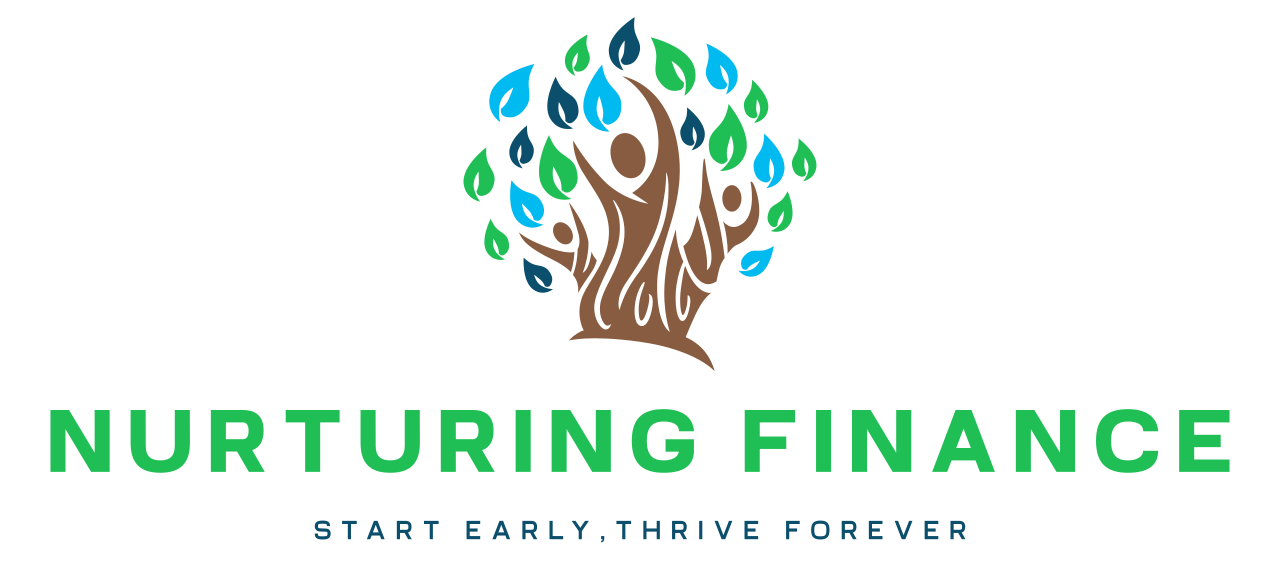Are you ready to make smart financial decisions that will shape your future? Understanding personal finance is key. It helps us manage our money well.
We often forget how important financial education is in school. But, teaching students about financial concepts is vital. It helps them make smart money choices and stay financially stable.
Learning about financial literacy is a game-changer. It lets the next generation control their financial future. It’s a skill that helps them throughout their lives.
Key Takeaways
- Understanding financial concepts is key for smart choices.
- Financial education helps students manage their money well.
- Knowing about personal finance is essential for financial stability.
- Financial literacy is a vital skill for life.
- Teaching students about finance prepares them for a secure future.
The Current State of Financial Literacy Among Students
Financial literacy among students is a big concern today. Modern financial systems are complex, and students often lack the skills to manage their money well.
Listen to the podcast episode: Advocating For Financial Literacy Education
Alarming Statistics About Student Financial Knowledge
Studies show a worrying lack of financial knowledge among students. For example, a big number of students don’t know about compound interest and budgeting. Only 24% of high school students take a personal finance course, showing a big education gap.
Common Financial Misconceptions Among Young Adults
Young adults often think financial literacy is only important when they start working. But, the habits formed in school years can last a lifetime. A financial expert says, “Financial literacy is not just about saving. It’s about making smart choices that impact your finances for years.”
The Financial Education Gap in American Schools
The financial education gap in American schools is a big problem. Many schools don’t focus on teaching finance, leaving students to face complex money decisions alone. A report recently pointed out,
“The lack of financial education in schools is a significant contributor to the financial challenges faced by young adults.”
This issue not only hurts students’ financial stability but also affects the economy as a whole.
“To better understand the current landscape of financial literacy education among students, we can look at recent surveys conducted by reputable organizations. These surveys provide insights into how well-equipped our students are to manage their finances and what they think about their financial education.”
For those interested in exploring the full reports and more detailed statistics, you can find the Council for Economic Education’s survey www.councilforeconed.org and the Intuit survey
www.intuit.com.”
Why Is Financial Literacy Important for Students: The Surprising Benefits
Learning about money can change a student’s life. It helps them make smart choices about money. This section will show how financial literacy benefits students.
Building a Foundation for Lifelong Financial Success
Financial literacy is key for a strong financial future. Students learn to manage money well. This means saving, investing, and avoiding debt.
Effective financial planning helps students reach their goals. Whether it’s paying for school, buying a home, or starting a business.
Reducing Financial Stress and Anxiety
Many students feel stressed about money. But, learning about finance can help. They can create budgets and make smart money choices.
This knowledge lets them control their finances. It leads to a more stable financial future.
Empowering Confident Decision-Making
Financial literacy helps students make confident money choices. They learn about personal finance. This includes understanding student loans and credit cards.
Being informed helps students avoid financial mistakes. They choose products that fit their goals and needs.
Financial literacy brings many benefits to students. It’s important for schools and financial institutions to support this learning. This way, students can improve their financial well-being and quality of life.
The Real-World Impact of Financial Illiteracy on Student Lives
Financial illiteracy affects students deeply, often leading to financial problems. Without a good grasp of money matters, students make choices that harm their financial future.
Students struggle with financial aid and loans. Student loan debt traps can weigh heavily on their finances for years.
Student Loan Debt Traps and How to Avoid Them
Many students graduate with a lot of debt. To avoid debt, it’s key to know your loan terms, like interest rates and how to pay back. Careful planning and early awareness help students borrow wisely.
- Understand the difference between subsidized and unsubsidized loans.
- Consider income-driven repayment plans.
- Explore loan forgiveness options.
Credit Card Pitfalls and Their Long-Term Consequences
Credit card misuse is a big problem for students. High-interest rates and fees can cause a lot of debt. Credit card pitfalls can hurt a student’s credit score, making it hard to get loans or credit later.
To avoid these issues, students should think carefully before getting credit cards. Responsible credit card use means paying off the balance each month and knowing the interest rates.
Missed Opportunities for Early Wealth Building
Financial illiteracy not only causes debt but also means missing chances to build wealth early. Students who learn about investing and saving can start building wealth, benefiting from compound interest and growth over time.
By understanding financial planning, students can make smart choices for their money. Early financial education helps avoid financial problems and ensures a stable financial future.
Financial Literacy Matters Skills Every Student Should Master
As students move through school and into their careers, learning key financial skills is vital. Being financially stable and independent is key to reaching long-term goals. Mastering certain financial skills can greatly impact your success.
Creating and Managing a Personal Budget
Every student should learn to create and manage a personal budget. A good budget helps you track your money, ensuring you use it wisely. Start by listing your income and fixed costs, like tuition and living expenses. Then, set aside money for savings and fun.
Good budget management means regularly checking and updating your budget. Use budgeting apps or spreadsheets to keep track of your finances. This gives you a clear view of your money situation.
Understanding Credit Scores and Their Importance
Knowing about credit scores is another important skill. Your credit score shows how reliable you are with money, affecting loan and credit card rates. To keep a good score, pay on time, use credit wisely, and check your report for mistakes.
Understanding credit scores helps students make smart choices about credit and loans. This avoids financial problems that could hurt your future.
Basic Investing Principles for Long-Term Growth
Investing is key for long-term financial planning. Starting early can lead to big gains through compound interest. It’s important to know about different investments and have a balanced strategy.
Emergency Fund Planning: Your Financial Safety Net
Building an emergency fund is also critical. It’s a financial safety net for unexpected costs or shortfalls. Try to save three to six months’ living expenses in a savings account you can easily access.
By learning these financial skills, students can set themselves up for long-term financial success and stability.
Navigating Major Financial Decisions During College Years
Students in college face many financial decisions that shape their future. These choices can be tough and affect their lives for years to come. It’s vital for students to make informed and careful decisions.
Good financial planning in college needs knowledge, planning, and discipline. By knowing what financial choices to make, students can control their financial future. This sets them up for success in the long run.
Smart Student Loan Management Strategies
Handling student loans is key during college. Students should know their loan options and the terms of each. This helps avoid debt problems.
Some smart ways to manage student loans include:
- borrowing only what is necessary
- understanding the differences between subsidized and unsubsidized loans
- considering income-driven repayment plans
- making timely payments to avoid default
Housing Decisions: Financial Implications of Different Options
Housing decisions are also important for college students. The choice between living on campus or off campus affects finances.
Students should think about cost, convenience, and flexibility when choosing housing. On-campus housing might be more convenient but costs more. Off-campus housing could be cheaper but requires more planning and responsibility.
Balancing Work and Study: Maximizing Income While Prioritizing Education
Many students work to earn money while studying. Working can help pay bills and build skills. But, it can also take up a lot of time and affect grades.
To balance work and study well, students should focus on their studies first. Look for jobs that are flexible and fit their interests and skills. This way, they can earn money without sacrificing their education.
How to Develop Financial Literacy Skills as a Student
Starting your journey to financial literacy is easy. First, learn about the resources for self-education. As students, it’s key to get financial knowledge. This helps you make smart money choices.
Free Resources and Tools for Self-Guided Financial Education
Online, you’ll find many free resources to learn about money. Sites like Investopedia and NerdWallet have lots of info on personal finance. Also, Coursera and edX offer online courses on finance.
Using these tools helps you grasp financial concepts. You can apply what you learn to your life.
Campus Resources and Financial Aid Office Support
Colleges often have resources to boost your financial literacy. The financial aid office can help with loans and debt. They also guide you on future financial aid.
Some schools also have workshops or counseling for financial management.
Apps and Technology That Make Financial Learning Accessible
Technology makes managing money easy for students. Apps like Mint, Personal Capital, and YNAB (You Need a Budget) help track spending. They also help set financial goals.
These apps teach important lessons in financial planning and discipline.
Finding Mentors and Financial Role Models
Having a mentor or financial role model is very helpful. They can offer personalized advice on managing money. This could be a financial advisor, professor, or a responsible peer.
Learning from someone who has handled financial challenges well can give you practical tips. It also motivates you to stay on track.
Incorporating Financial Literacy Into Your Daily Student Life
Adding financial literacy to our daily routines helps us make smart choices. As students, we handle school, friends, and more. Learning about money can really help our financial future.
Small Daily Habits That Build Financial Strength
Small habits can make a big difference in our finances. For example, tracking our spending daily is key. Apps like Mint help us stay on budget. Saving a little each day also adds up.
Peer Learning and Financial Study Groups
Learning from friends is a great way to get better at money matters. Joining financial groups on campus is a good idea. We share tips and learn from each other’s experiences.
Practical Exercises to Strengthen Your Money Management Skills
Doing practical exercises helps us get better at handling money. Making a budget based on our income and expenses is a good start. We can also practice dealing with unexpected costs or income changes. Taking financial workshops or online courses gives us real-world experience.
By making these habits part of our daily lives, we build a strong financial foundation. This empowers us to make choices that support our financial goals for the future.
Preparing for Post-Graduation Financial Challenges
As students get ready to graduate, they face new financial hurdles. They need to plan and manage their money well. This includes becoming financially independent, making big purchases, and even thinking about retirement.
Transitioning to Full Financial Independence
One big challenge is becoming fully financially independent. This means managing your money, making a budget, and making smart choices. Building an emergency fund is key to handle unexpected costs and avoid surprises.
Retirement Planning: The Power of Starting in Your 20s
Starting to plan for retirement in your 20s is wise. It’s because of compound interest. Even small, regular savings can grow a lot over time. Using employer-matched retirement accounts like 401(k) is a smart way to boost your savings.
Navigating Major Life Purchases: Cars, Homes, and Beyond
Big purchases, like cars or homes, need careful planning. It’s important to understand the costs, financing options, and interest rates. Creating a savings plan for these and thinking about their long-term effects helps make better choices.
Conclusion: Taking Control of Your Financial Future
Financial literacy is key for students to manage their money well. It helps them make smart choices, avoid money mistakes, and start strong with their finances. This knowledge is vital for their financial success in the long run.
To control your financial future, you need to act now. Start with good money habits like budgeting, handling debt, and saving for the future. These steps will help you achieve financial stability and success over time.
We urge students to value financial literacy and make it a daily habit. This way, they can handle personal finance better and reach their financial goals. By taking charge of their finances, students can look forward to a brighter financial future and gain financial freedom.
Why is financial literacy important for students? FAQ
How does financial literacy help in making informed financial decisions?
With a solid grasp of financial literacy, students can make informed financial decisions that positively impact their lives. This includes understanding how to create a budget, manage expenses, and prioritize savings to achieve their financial goals. Such decision-making skills can help avoid pitfalls like excessive debt and poor investment choices.
What are the key components of financial literacy for students?
The key components of financial literacy for students include understanding money management, debt management, and the principles of financial planning. Additionally, concepts like credit scores, interest rates, and the importance of an emergency fund are essential for fostering a comprehensive understanding of personal finance.
How can financial literacy alleviate financial stress for students?
By equipping students with financial knowledge, financial literacy can significantly reduce financial stress. When students understand how to budget, save, and invest, they can better manage their resources and avoid the anxiety that often comes from financial uncertainty, such as concerns over student loans or unexpected expenses.
In what ways does financial literacy contribute to long-term financial security?
Financial literacy plays a vital role in achieving long-term financial security. Students who learn to manage their finances effectively are more likely to develop healthy financial habits that promote saving and investing, leading to greater wealth accumulation and stability in the future.
Why is it essential to teach financial literacy in schools?
Teaching financial literacy in schools is essential because it empowers students to handle their finances responsibly. By integrating financial education into the curriculum, educators can help students recognize the importance of financial literacy and prepare them to face the financial challenges that await them in adulthood.


